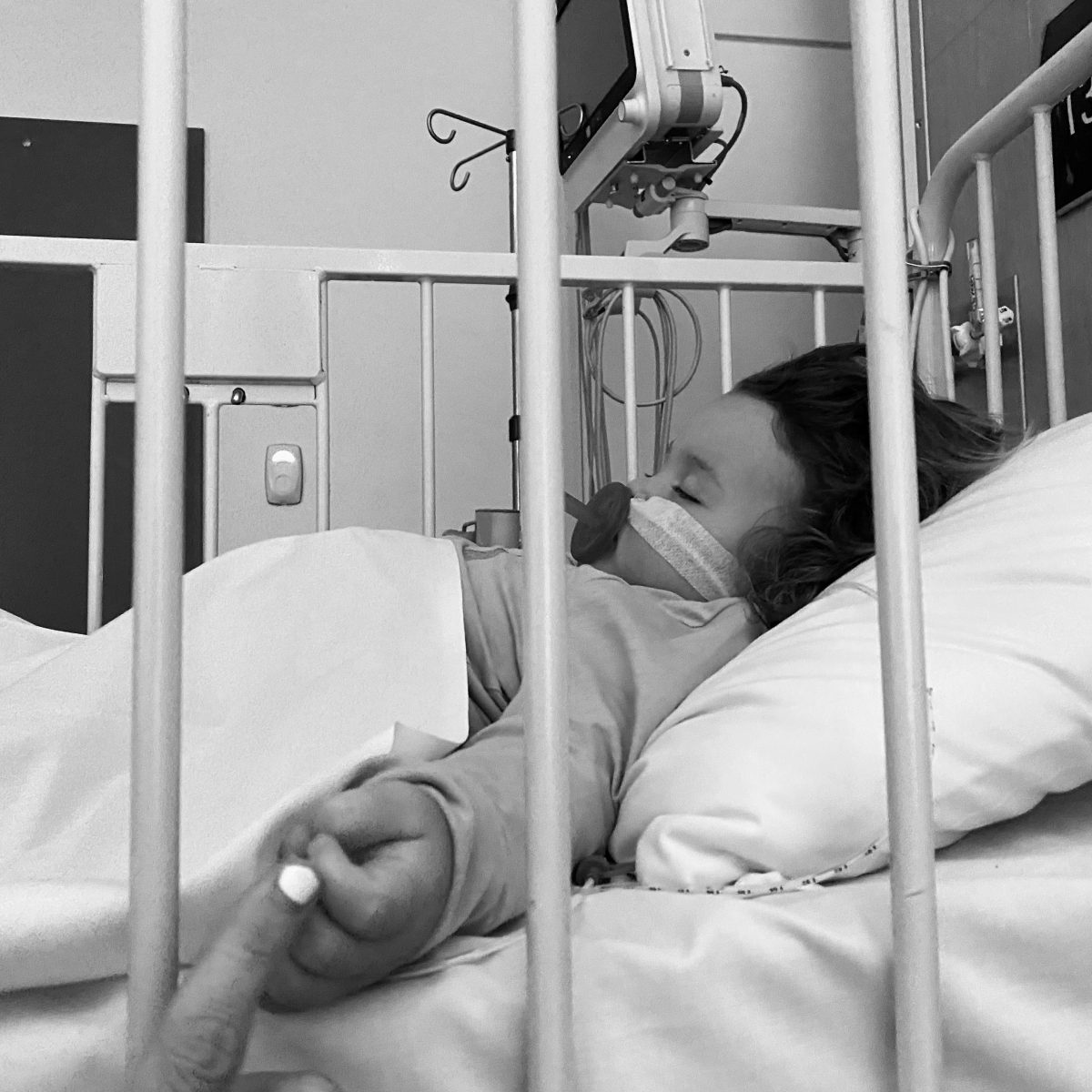When Brunswick Heads toddler Alaska Landy was suddenly struck down with a dangerously high fever in October 2020, her mum Katarina rushed her to their local hospital in northern NSW. With no other symptoms or explanation, and being cleared for COVID-19, Katarina returned home with her then 18-month-old daughter.
Katarina kept a watchful eye on Alaska, but when her persistent fever still hadn’t broken after three days and multiple hospital visits, Katarina took Alaska to the paediatric unit at Tweed Hospital for further investigation.
“It wasn’t clear what was wrong with Alaska,” Katarina said.
The only obvious signs for infection on her little body was an inflamed mosquito bite. But with her fever reaching about 40°C, medical teams soon realised the life-threatening situation Alaska was in – she had contracted a serious blood infection that resulted in toxic shock syndrome.
An emergency retrieval team were called in to urgently transfer Alaska to Gold Coast University Hospital. With her heart rate critically low and her organs failing, the emergency retrieval team had to perform a fluid resuscitation.
Upon being admitted to the Emergency Department at Gold Coast University Hospital, Alaska was immediately put on heavy sedation so doctors could insert multiple IV lines and administer medication to stop her heart from failing. The next morning, Alaska was taken to the Children’s Critical Care Unit where she underwent three different types of antibiotic treatment.
“That seemed to be working, so she went to the Paediatric Unit,” Katarina said.
“But after a few days, her fevers were continuing, and I knew something wasn’t right.
“The doctors said it indicated a secondary infection.”
Alaska went under general anaesthetic for an MRI and ultrasounds, plus she needed extensive blood tests. Doctors discovered an abscess near her hip bone, so Alaska was taken back to the Children’s Critical Care Unit.
Alaska’s parents were told their gorgeous toddler needed a surgical operation to remove the abscess. But first, she would need to undergo another surgery under general anaesthetic to insert a PICC line close to her heart to provide a more direct way to administer IV antibiotics and fluids during the subsequent surgery to remove the abscess.

Following Alaska’s surgeries, doctors kept her in a medically induced coma and on ventilation to help her breathe. She recovered in the Children’s Critical Care Unit for three nights, before going back to the Paediatric Unit. But Alaska’s fight wasn’t over yet and the little girl faced more complications.
“She was unable to walk, due to having been bed ridden for so long, she also required a blood transfusion and was on a feeding tube for a few days,” Katarina said.
“But her condition started to improve and blood tests showed there was no more bacterial infection.
“Alaska remained on antibiotics for a further three weeks at home and a few weeks after going home, she regained her ability to walk by herself.”
With Alaska’s medical crisis quickly escalating into a life-and-death situation that all started from a suspected mosquito bite, Katarina says the frightening ordeal her young daughter and family endured only eight weeks before Christmas, wasn’t completely realised or felt at the time.
“It was crazy, the severity of Alaska’s condition never really sunk in,” she said.
Given the ongoing COVID-19 crisis and living across the border in northern NSW, Katarina says both herself and husband Bodhi were fortunate to stay on the Gold Coast to be close to Alaska during her time in hospital.
“We stayed at a motel nearby the hospital and alternated days staying with Alaska and caring for her older sister, Alia,” Katarina said.
“The hospital organised financial assistance for the accommodation. It was a lifesaver. We are so thankful.”
Gold Coast Hospital Foundation supports families by providing emergency accommodation close to hospital so direct family members of patients in intensive care can remain nearby to their loved ones during recovery from serious illness or critical injury.
Alaska spent three-and-a-half weeks receiving lifesaving treatment at Gold Coast University Hospital, which meant she was one of the lucky kids to be going home for Christmas.
“We’re so grateful for everything the hospital and staff did to care for Alaska,” she said.
“It was so amazing when we were at the worst stage in our life. They saved her life.”
